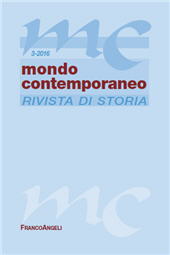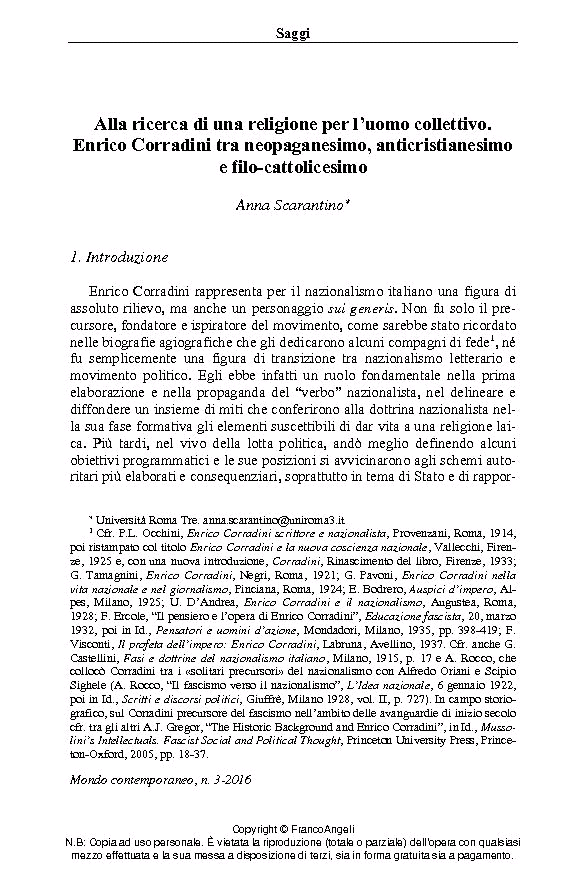Alla ricerca di una religione per l'uomo collettivo : Enrico Corradini tra neopaganesimo, anticristianesimo e filo-cattolicesimo
5-51 p.
What was the position of Italian imperialist nationalism towards religion and the religious dimension of politics, as it manifested itself in the first decades of the 20th century facing the rise of the masses? How was it possible to conciliate the cult of the Nation, a cult which became a religious one, with the defense of the traditional religion of the Italians and with the nationalists' will to seal a durable agreement with the Catholics? Is it possible to establish a link between these two dimensions? This is what this essay aims to investigate through an analysis of the positions of the acknowledged founder of the movement, Enrico Corradini.
His evolution between literature and politics was characterized by a long anti-Christian and pagan season, where paganism represented the model of the attained fusion between national conscience and religious faith, and Christianity was the disruptive element that had broken the ancient balance and the continuing obstacle to the development of a strong national faith in the present. Separating and confronting Christianity to Catholicism, he resumed the latter as heir to the universal greatness of Rome and tried to absorb it within the religion of the Nation. Corradini's thought, at once authoritarian, mythic, pseudo-religious and modernist, appears therefore paradigmatic of a current of thought that was discovering the im-portance of the religious dimension of politics even before the Great War, representing at the beginning of the century the first breeding ground of Fascism. [Publisher's Text].
-
Articoli dello stesso fascicolo (disponibili singolarmente)
-
-
Informazioni
Codice DOI: 10.3280/MON2016-003001
ISSN: 1972-4853
PAROLE CHIAVE
- Enrico Corradini, anticristianesimo, nazionalismo e religione, paga-nesimo e nazionalismo, romanità e nazionalismo, cattolicesimo e nazionalismo
- o Corradini, anti-Christianity, Nationalism and religion, paganism and Nationalism, romanità (romaness) and Nationalism, Catholicism and Natio-nalism



